Most organizations to a certain extent are affected by sub-optimization and a silo mentality. That means that units optimize their own decisions based on what will help them to reach good results. This undoubtedly leads to the work being concentrated on meeting the specific targets of the individual teams, with the risk that it might, at the same time, neglect the common good of the business.
A team’s performance relies heavily on their plans and discipline to execute them. But even if we had the greatest team performance internally, the outcome depends on relationships and collaboration with our neighbor teams. In these interface friction, conflicting targets and sub-optimization could even harm a lot of the value created inside the team. It becomes clear that in order to continue their development, they, and the teams around them need to improve their relationships and create a common ground on important issues.
In reality many initiatives driven by KPIs are mostly meant for the internal focus and area of responsibility of the team. It is often that this cause sub-optimization, usually because of contradictory targets, a feeling of competition, lack of understanding of other people’s backgrounds, misunderstandings or even a lack of willingness to cooperate. A lot of things could be gained if there was a way of uniting these different and possibly contradictory targets and opinions towards a common direction.
The COD way of working will be essential to involve all members of both teams in working solution-oriented and staying away from accusations and criticism. Instead, we focus on develop a path for a collaborative and successful work environment between teams by highlighting what works well and worries from both sides moving forward. The concerned teams will thereby work on identifying solutions and make decisions on how to handle the worries. To accelerate a team’s continuing business development, identifying common gaps, in a non-confrontative way, with their interface teams is crucial. The aim is to find common agreements that drive close collaboration between the teams.
Sometimes it could be a good idea to have a neutral part facilitating meetings between two parties where the situation is clearly infected. Interface workshops is therefore part of the COD product portfolio. Key people from both teams are then invited to a two days’ workshop. The agenda of these days is to clarify and sort out the situation in an involving way. The involved parties are encouraged to share information, understand each other’s backgrounds, challenges etc. It is often a sensitive process that should be built on trust, respect openness and discussions based on facts. Next step is to set a good foundation for a better work environment to have a session where both teams get to share what they believe work good in their common work. To rise what does not work well is an invitation for conflicts, especially in an already infected situation, therefore we look on concerns from both teams. Both teams get a chance to sort out the worries raised and find a solution to them that ensures a better collaboration in the future. Finally, a common plan for common focus areas to support the joint development are set.
